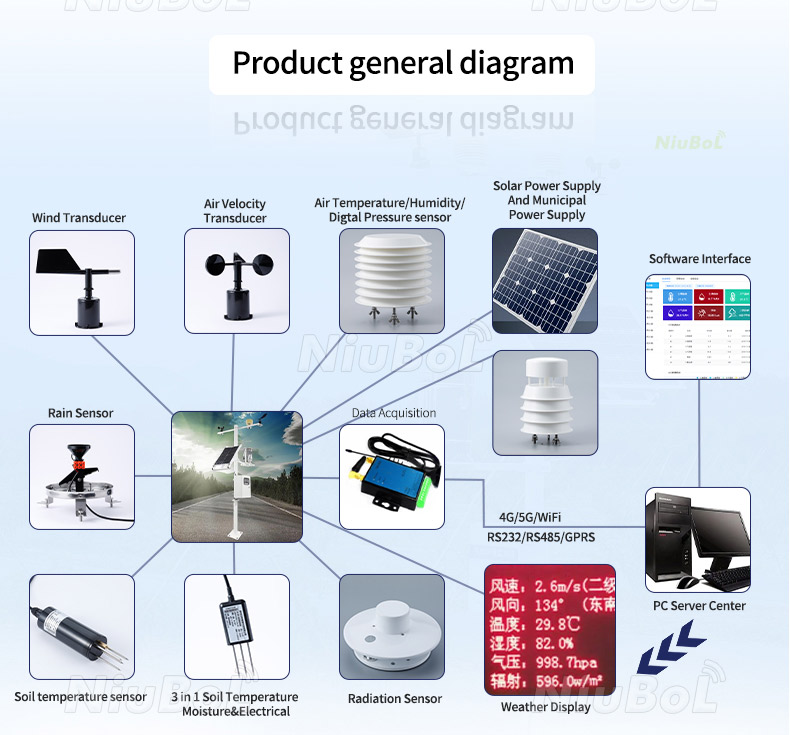

— Blogs —
—Products—
 Consumer hotline +8618073152920
Consumer hotline +8618073152920 WhatsApp:+8615367865107
Address:Room 102, District D, Houhu Industrial Park, Yuelu District, Changsha City, Hunan Province, China
Product knowledge
Time:2022-11-28 21:44:06 Popularity:1671
1. Introduction to Smart Agriculture
Intelligent agriculture refers to the use of industrialized production under relatively controllable environmental conditions to achieve modern advanced agricultural production methods with intensive and sustainable development, which is the intensive intensiveization of agricultural advanced facilities and open fields with high degree of technical specifications and high benefits. Large -scale production method.

It integrates scientific research, production, processing, and sales to achieve the production scale of the anniversary, all -weather, and anti -season;
It integrates modern biotechnology, agricultural engineering, agricultural new materials and other disciplines, relying on modern agricultural facilities, high scientific and technological content, high product added value, high land production rate and high labor productivity. project.

Second, the working principle of intelligent agricultural systems
Intelligent agriculture collects environmental parameters such as the temperature, soil temperature, CO2 concentration, humidity signal, and light, leaf humidity, dew point temperature and other environmental parameters through real -time collection, and automatically turn on or close the designated equipment.
NIUBOL can be processed at any time according to user needs to provide scientific basis for the automatic monitoring of comprehensive ecological information of facilities, automatic control and intelligent management of the environment.
Signals such as temperature sensors through modules, transmitting data through wireless signals and receiving modules to achieve remote control of the temperature and humidity of the greenhouse.
Intelligent agriculture also includes the smart grain depot system. The system observes real -time observation of the perception of the temperature and humidity in the grain library with the connection between the computer or the mobile phone to record the situation on the site to ensure the temperature and humidity balance of the grain depot.

3. Smart agriculture implementation process
1. Information acquisition
Including farmland geographical elements, environmental information, and crop information acquisition.
2. Analysis decision
It mainly includes a series of operating processes such as GIS management, variable fertilizer irrigation spraying, and output data processing.
3. Variable implementation
It is mainly divided into several steps such as variable fertilization, variable spray, and intelligent production.
Related recommendations
Sensors & Weather Stations Catalog
Agriculture Sensors and Weather Stations Catalog-NiuBoL.pdf
Weather Stations Catalog-NiuBoL.pdf
Related products
 Combined air temperature and relative humidity sensor
Combined air temperature and relative humidity sensor Soil Moisture Temperature sensor for irrigation
Soil Moisture Temperature sensor for irrigation Soil pH sensor RS485 soil Testing instrument soil ph meter for agriculture
Soil pH sensor RS485 soil Testing instrument soil ph meter for agriculture Wind Speed sensor Output Modbus/RS485/Analog/0-5V/4-20mA
Wind Speed sensor Output Modbus/RS485/Analog/0-5V/4-20mA Tipping bucket rain gauge for weather monitoring auto rainfall sensor RS485/Outdoor/stainless steel
Tipping bucket rain gauge for weather monitoring auto rainfall sensor RS485/Outdoor/stainless steel Pyranometer Solar Radiation Sensor 4-20mA/RS485
Pyranometer Solar Radiation Sensor 4-20mA/RS485
Screenshot, WhatsApp to identify the QR code
WhatsApp number:+8615367865107
(Click on WhatsApp to copy and add friends)
